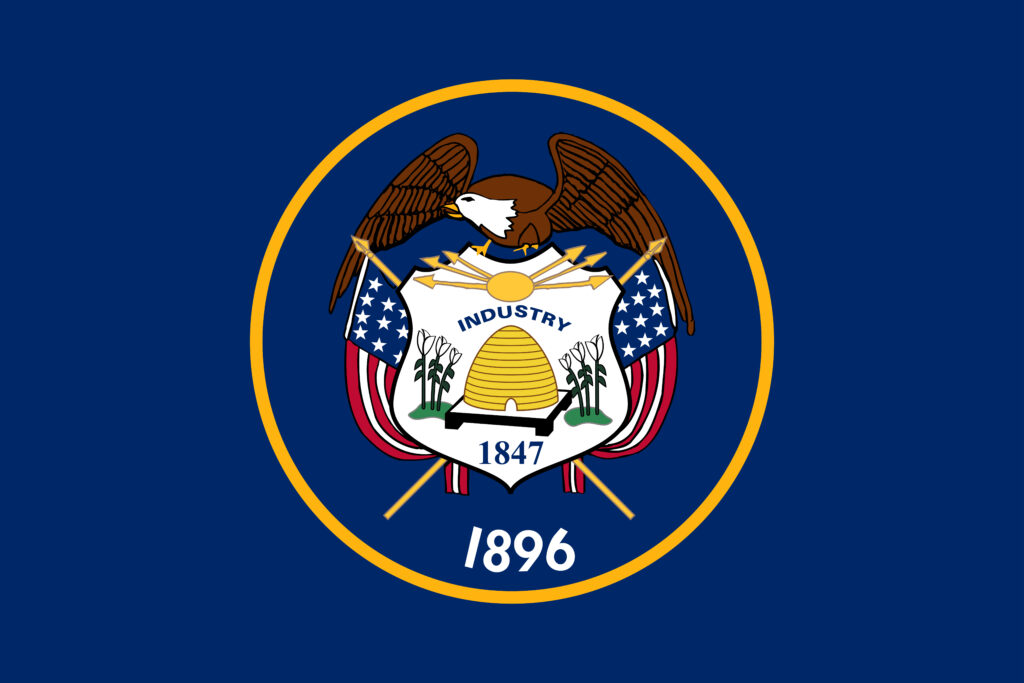Starting out in wholesale real estate investing can be particularly appealing to beginners due to its lower capital requirements and potential for high returns.
Success in this field demands a solid understanding of the basics, such as identifying distressed properties and crafting compelling purchase contracts.
Building a reliable network of buyers and honing negotiation skills are essential components.
Staying abreast of legal regulations ensures smooth transactions.
By examining the complexities of this investment strategy, you'll uncover the vital steps and insights necessary to thrive in the dynamic world of wholesale real estate.
Key Insights
- Build a robust buyer network by attending local real estate events, leveraging social media platforms, and executing targeted marketing campaigns.
- Source distressed properties through comprehensive market research, online listings, and direct mail campaigns.
- Negotiate contracts effectively by understanding seller motivations, incorporating necessary contingencies, and accurately calculating maximum allowable offers.
- Ensure legal compliance by familiarizing yourself with state regulations, using legally sound contracts, and seeking advice from real estate attorneys.
Defining Wholesaling Real Estate

Wholesaling real estate is an investment strategy where an individual locates distressed properties, secures purchase contracts, and assigns those contracts to other investors for a profit, without taking ownership of the properties.
This method is particularly suitable for beginners due to its low capital requirements. The process begins by targeting motivated sellers, often in financial distress, which allows for favorable purchase negotiations.
Accurate property valuation is essential to ensure profitability. Establishing a reliable list of cash investors is crucial for quick transactions.
Success in wholesaling requires thorough market research and a solid understanding of legal requirements, making it an accessible and strategic entry point into real estate investing.
Steps to Get Started
To get started in wholesale real estate investing, build a strong buyer network through networking events and online platforms. This ensures you have potential purchasers ready when opportunities arise.
Focus on finding potential properties by researching neighborhoods, using MLS listings, and employing direct mail campaigns.
These foundational steps position you effectively within the market and enable you to capitalize on lucrative deals.
Building Your Buyer Network
Building a strong buyer network is essential for successful wholesale real estate investing.
Start by attending local real estate networking events and meetups to make valuable in-person connections. In addition to finding buyers, employ effective marketing strategies and lead generation techniques.
Utilize online platforms such as social media groups and real estate forums to broaden your reach. Create and maintain a dedicated buyers list with updated contact information and investment criteria to streamline communication.
Implement targeted marketing strategies like direct mail campaigns and email newsletters to keep your buyers informed.
Establish relationships with real estate agents and brokers to gain insights and connections to potential cash buyers. This enhances your network's strength and efficacy.
Finding Potential Properties
After establishing a strong buyer network, the next step is to locate potential properties suitable for wholesale deals.
Start by conducting thorough market research to identify neighborhoods with distressed properties and motivated sellers.
Effective property sourcing involves using online listings, local real estate agents, and public records to find properties in financial distress, such as foreclosures or those with liens.
Drive through neighborhoods to visually identify neglected or vacant properties.
Attending networking events with real estate professionals and local investor meetups can provide valuable insights and leads.
Direct mail campaigns targeting homeowners who may be motivated to sell quickly can also be effective.
Clear communication of your intent to help them sell their properties is crucial in these campaigns.
Finding Distressed Properties

Identifying distressed properties is a critical skill for wholesale real estate investors, requiring a strategic approach to uncover potential deals.
Begin with market analysis to pinpoint homes that have been on the market for extended periods, as this often indicates motivated sellers. Utilize public records to find properties in foreclosure or with liens, typically owned by financially distressed individuals.
Conduct thorough property inspections to assess their physical condition and perform title searches to uncover any legal issues. Driving through neighborhoods can help spot neglected properties, and online resources like real estate auction sites and MLS listings can be valuable tools.
Implementing direct mail campaigns or social media advertisements can also reach potential sellers. Strong negotiation skills are crucial for securing these properties at favorable prices.
Contract Negotiation
Effective contract negotiation in wholesale real estate investing requires a thorough understanding of the seller's motivations, enabling investors to create offers that are both compelling and mutually beneficial.
Key elements include incorporating an inspection contingency in the purchase agreement to protect against unforeseen repair costs.
Establishing a maximum allowable offer (MAO) is crucial; it should consider the property's after-repair value (ARV), estimated repair costs, and your desired profit margin.
Clear communication throughout the negotiation process helps sellers understand the benefits of wholesaling and the speed of transaction closure.
Building rapport and maintaining professionalism further enhance trust, potentially leading to favorable negotiation outcomes and future deal opportunities.
Building a Buyers List

Once you have successfully negotiated contracts, the next critical step in wholesale real estate investing is building a strong buyers list to ensure swift and profitable transactions.
A robust cash buyers list involves identifying potential buyers, such as real estate investors, landlords, and house flippers. Networking events and real estate investment clubs offer excellent opportunities to connect with these buyers.
Additionally, online marketing through social media groups and forums can significantly expand your reach. Cold calling remains a traditional yet effective tactic.
To maintain an updated list, tailor your outreach to the specific preferences and needs of your buyers, including property types and investment strategies. This comprehensive approach ensures you have ready investors when a deal becomes available.
Legal Considerations
Understanding the legal landscape is crucial for successful wholesale real estate investing.
Wholesalers must ensure their contracts are legally sound and comply with state-specific regulations to avoid potential disputes.
Compliance with regulations, such as distinguishing between assigning contracts and acting as a broker, is vital to maneuver the intricacies of the real estate market.
Contractual Obligations
Navigating the contractual obligations in wholesale real estate investing requires a thorough understanding of legal considerations to ensure compliance and protect all parties involved.
Central to this process is the assignment contract, which enables wholesalers to transfer purchase agreements to end buyers without breaching legal obligations.
Real estate laws vary significantly from state to state, making it essential to understand the specific regulations governing wholesaling and contract assignments in your area.
Enrolling in wholesaling courses can provide comprehensive knowledge, and working with a real estate attorney to review contracts ensures adherence to local legal considerations.
To avoid misrepresentations and potential legal disputes, it is crucial to disclose your intermediary status in transactions.
Failure to meet contractual obligations can result in financial penalties or the forfeiture of earnest money deposits.
Compliance Regulations
Compliance with legal regulations is crucial in wholesale real estate investing to ensure lawful operations and avoid severe penalties.
Understanding and adhering to these regulations, including licensing requirements, is essential as they vary by state. Some states mandate wholesalers to have a real estate license, while others do not, necessitating thorough local research.
Clear disclosures about intermediary status must be provided, and adherence to Federal Trade Commission guidelines is necessary to avoid misrepresentation.
Assignment contracts are governed by specific state laws, including disclosure obligations.
Consulting real estate attorneys is advisable to ensure all contracts meet legal standards, safeguarding against potential disputes.
Proper compliance protects your business and fosters trust in your transactions.
Profitability and Risks

Profitability in wholesale real estate investing hinges on effective negotiation skills and current market conditions. Profit margins typically range from 5% to 10% on homes priced between $300,000 and $400,000. Success in this field demands comprehensive due diligence, robust risk management, accurate cash flow analysis, and meticulous financial planning.
Due Diligence: Thoroughly research to identify distressed properties and motivated sellers.
Risk Management: Prepare for market unpredictability that could affect property valuations and buyer availability.
Cash Flow Analysis: Aim to close multiple deals annually to ensure consistent income.
Financial Planning: Structure finances to manage income fluctuations and potential market downturns.
Understanding these elements is crucial for maximizing profitability while mitigating inherent risks.
Marketing Strategies
Marketing wholesale real estate deals effectively is crucial for attracting both sellers and buyers, facilitating successful transactions.
For beginners in wholesale real estate investing, leveraging economical methods such as social media marketing, bandit signs, and online platforms like Craigslist and Facebook Marketplace can be highly effective.
Building a professional website and engaging in email marketing can establish credibility and keep your buyers list active.
Attending local real estate networking events and meetups helps expand your cash buyers list.
Continuous education through real estate blogs and other resources ensures you stay updated on market trends and strategies, enabling you to refine your marketing efforts and achieve better results in your wholesale deals.
Summing it Up
Wholesale real estate investing serves as an accessible entry point for beginners, requiring minimal capital but necessitating a strong grasp of market research, negotiation skills, and legal compliance.
Success hinges on building a reliable network of buyers and excelling at identifying distressed properties.
While the profit potential is substantial, understanding the risks and implementing effective marketing strategies are crucial.
Consistent effort and informed decision-making are essential for long-term success in this field.





